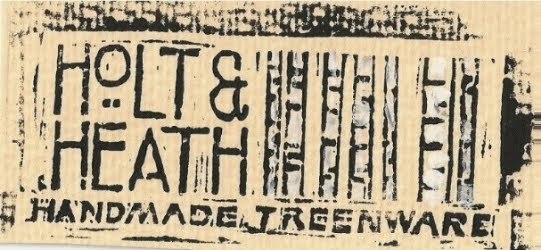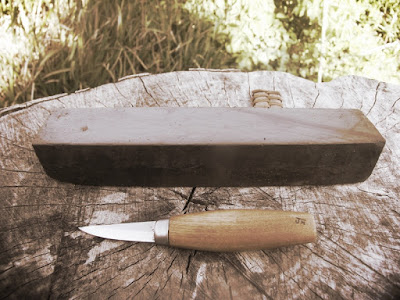I made a box for this little sharpening stone the other day as a gift for Richard. I often pick up nice natural sharpening stones from car boot sales and whenever I see a nice user made box, the chances are there'll be a nice stone inside. I thought it would be nice to make this for Richard as I have a similar sized stone that used to belong to one of my other brothers Adrian. Adrian died when I was only one year old, so as well as being a nice Belgian Blue natural stone, it has some sentimental value attached to it.
 |
| Adrian's stone |
I went to a boot sale on Monday and scored the biggest natural stone I've ever seen for the grand sum of £2.50. It's another Charnley Forest stone and will last several lifetimes.
This is the complete opposite of the small pocket stones and weighs like a brick.




Charnley forest stones are very variable as far as hardness and fineness. The earliest ones can be identified by the rounded bottoms caused by the driver blades used to quarry them. They also tend to have a more kahki color and are softer/faster. The speed of cut was prized by woodworkers and they considered later quarried examples inferior as they were harder and slower as a rule.. There is major play in these rectangular ones as well with some being softer and fast while others are so hard it is like the whole universe sat on the rock. Those latter types can be unbelievably fine but not as common. All of them are incredible as knife hones. Very alive feeling stones with much feedback. American washita and arkansas stones arriving in england pretty much ended the reign of the charnley as they are much faster cutters which is what woodworkers cherished. Beautiful examples, never sell them.-Keith
ReplyDelete